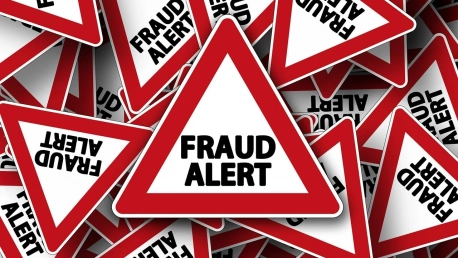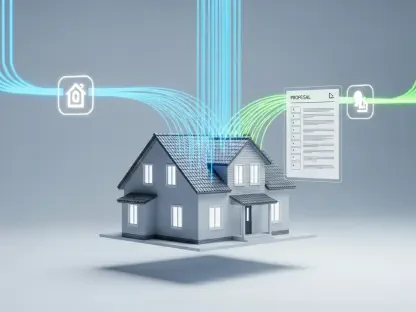Cargo theft in the U.S. is escalating, with losses exceeding $130 million in 2023. Experts believe the actual figures could be even higher. Thieves have evolved their strategies, increasingly leveraging technology to execute fraud, particularly through load boards—digital platforms that connect shippers with carriers. Fraudsters often exploit the anonymity of these platforms to conduct load phishing and double brokering schemes. This article explores these fraudulent tactics and the role of CDL verification in mitigating such risks.
The Emergence of New Load Board Fraud Techniques
Load boards are instrumental in facilitating connections between shippers and carriers, streamlining the logistics chain. However, their reliance on digital anonymity and online transactions makes them susceptible to exploitation. This environment has given rise to increasingly sophisticated fraudulent practices, notably load phishing and double brokering, which significantly affect the logistics industry.
Pervasive Practices: Load Phishing
Load phishing involves scammers impersonating legitimate trucking companies to trick brokers into assigning them freight. Using genuine-looking email addresses and fake IDs or CDLs, they build credibility. Once the cargo is loaded, it diverges from the intended route and is sold on the black market, leaving brokers and shippers at a loss. Fraudsters’ ability to create convincing fake identities and documents compounds the challenge, making detection a complex task.The anonymity provided by load boards plays a crucial role in helping scammers disguise themselves effectively, further complicating the efforts of law enforcement and logistics companies to thwart these schemes. The ensuing financial losses and logistical complications have a broad impact, negatively affecting shippers, brokers, and ultimately, consumers. As load boards are indispensable tools for efficient cargo distribution, the necessity for robust verification measures to secure these platforms is becoming increasingly evident.
Deceptive Maneuvers: Double Brokering
Double brokering is another prevalent scam that targets load boards. Here, a fraudster secures a load only to broker it out again to another unsuspecting carrier. This fraudulent activity can lead to the second carrier either not getting paid or receiving less than agreed upon. This tactic harms both the original shipper and the naive carrier, complicating the logistics chain further.The second carrier, often left out of the loop, struggles to recoup losses or find recourse. This deceitful practice erodes trust within the logistics community, making carriers more cautious and hampering efficient cargo distribution. The necessity for robust verification measures is evident as it becomes crucial to prevent these schemes from proliferating further. By safeguarding load boards with enhanced identity checks, the logistics industry can reduce fraud’s pervasiveness and bolster operational integrity.
The Role of Commercial Driver’s Licenses (CDLs)
CDL Basics and Importance
Commercial Driver’s Licenses (CDLs) are mandatory for drivers operating large vehicles, ensuring they meet specific requirements through written and practical tests. Much like standard driver’s licenses, CDLs contain both printed and encoded information. The PDF417 barcode on the back of these licenses stores detailed driver data, which is challenging to replicate fraudulently.The comprehensive data encoded within CDLs provides a robust tool for validating a driver’s identity. This verification process ensures that only qualified and legitimate drivers are handling freight, which is essential for maintaining security and trust in the logistics industry. The detailed information within the barcode is pivotal in reducing the possibility of successful identity manipulation by fraudsters.
Implementation of Mobile CDL Scanners
To counteract the deficiencies in load board security, integrating a mobile driver’s license scanner becomes essential. Scanning the CDL, especially the PDF417 barcode, before a driver takes over the load can quickly verify the authenticity of the driver’s credentials. This approach presents a barrier against fraudsters who might forge or manipulate license details. Comparing the scanned data against an official Driver License Data Verification Service enhances security further.Mobile CDL scanners offer a flexible and reliable solution that can be deployed effortlessly at various points within the supply chain. From the moment a carrier receives a load assignment to the delivery point, these scanners provide continuous verification, significantly reducing the risk of fraud. The ability to perform accurate and instant identity checks is a game-changer in safeguarding cargo and maintaining the integrity of logistics operations.
Advantages of Mobile CDL Scanners
Portability and Multi-functionality
Using mobile CDL scanners offers multiple benefits, including their portability and multi-functionality. These scanners can be embedded in smartphones or tablets, allowing for easy, flexible scanning anywhere. The convenience of having a mobile scanner on hand means that identity verification can occur at any point in the logistics chain, without requiring specialized or bulky equipment.The adaptable nature of mobile CDL scanners ensures that they can be integrated seamlessly into existing workflows. Whether at a warehouse, on the road, or at a delivery site, these tools provide consistent and reliable verification without disrupting operations. Their ease of use and accessibility act as a significant deterrent against fraud, offering a practical solution to a pervasive problem in cargo transportation.
Quick and Accurate Verification
Scanning typically takes a fraction of a second and boasts high accuracy, even in poor lighting conditions. This speed and efficiency are crucial in a fast-paced logistics environment where time is of the essence. Quick verification processes minimize delays and keep the supply chain moving smoothly while maintaining a high standard of security.Accurate verification ensures that only authorized personnel handle cargo, drastically reducing the chances of theft or fraud. High accuracy rates also mean fewer false positives, ensuring that legitimate drivers are not unnecessarily delayed or scrutinized. This balance of speed and precision enhances overall operational efficiency and security, making mobile CDL scanners an indispensable tool in the fight against cargo theft.
Offline Functionality
Cargo theft in the United States is on the rise, with reported losses surpassing $130 million in 2023. However, experts suspect that the actual figures could be even higher due to underreporting. Thieves are becoming increasingly sophisticated, using advanced technologies to carry out their fraud schemes. A significant portion of these fraudulent activities occurs through load boards—digital platforms designed to connect shippers with carriers. Criminals exploit the anonymity of these platforms, engaging in tactics like load phishing and double brokering to deceive and steal.Load phishing involves scammers posing as legitimate carriers to trick shippers into handing over valuable cargo. Double brokering scams, on the other hand, involve fraudsters accepting a shipment and then reassigning it to a different, often untraceable carrier without the shipper’s knowledge. The anonymity provided by these digital load boards makes it easier for criminals to disappear without a trace once the theft is complete.The growing complexity of these schemes has led to increased interest in solutions like Commercial Driver’s License (CDL) verification. By confirming the legitimacy of a carrier through CDL verification, shippers can significantly reduce the risk of falling victim to fraud. This article delves into these fraudulent tactics and emphasizes the crucial role that CDL verification can play in minimizing such risks.









